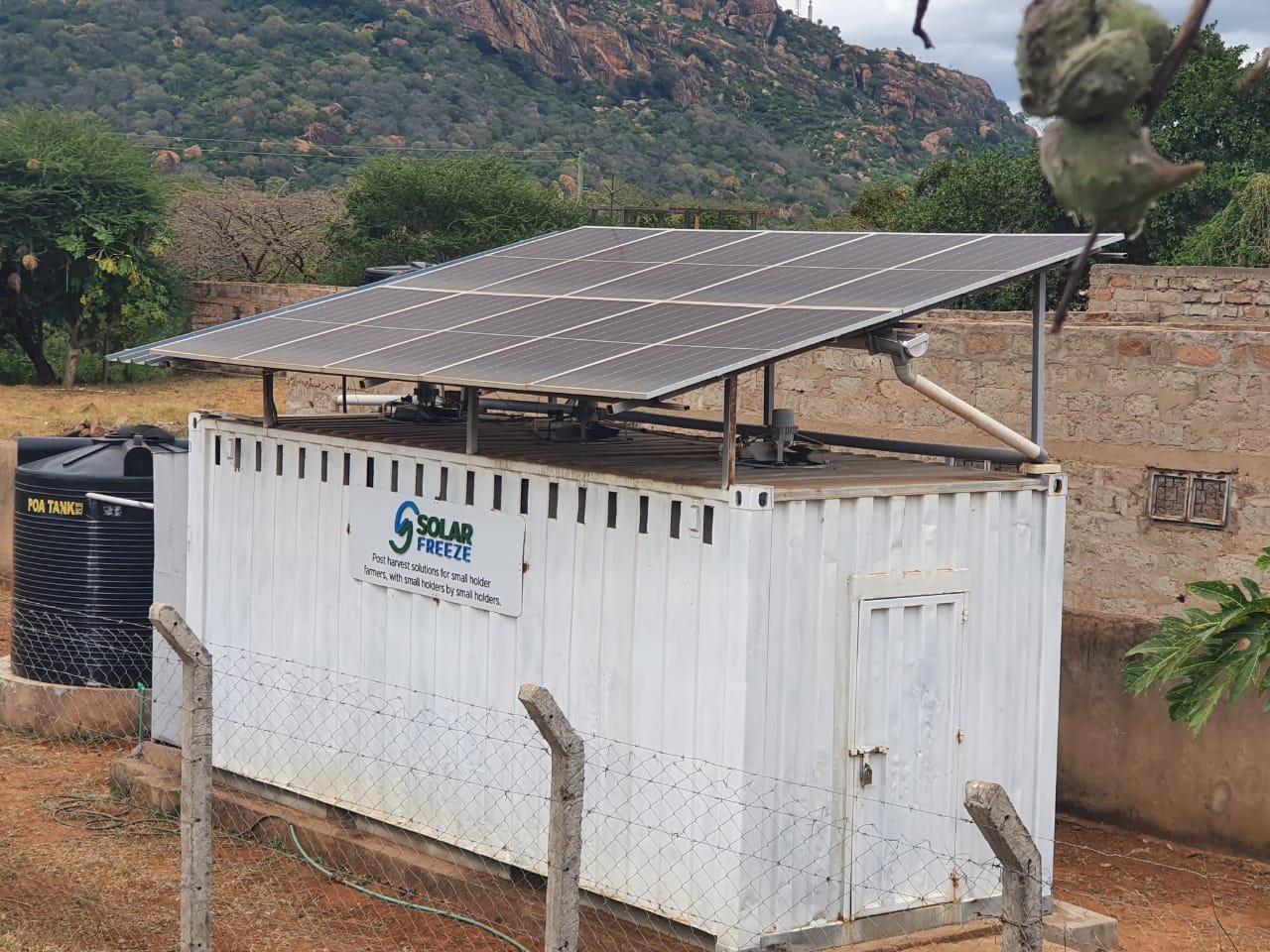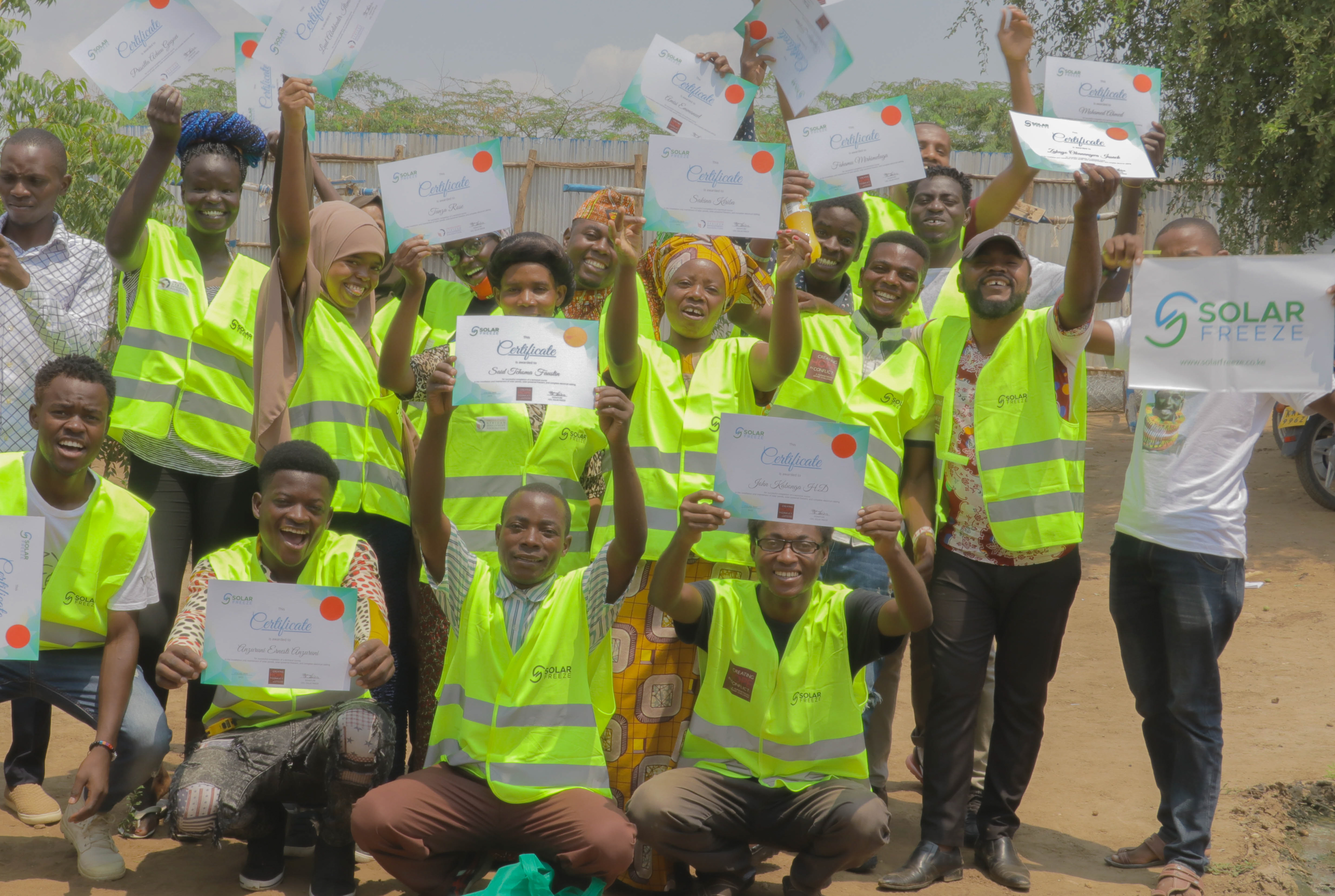Preserving Harvests: Fresh Solutions to Food Loss in Kenya
2025 LOCAL ADAPTATION CHAMPIONS AWARD FINALIST
Small-scale farmers in Kenya and across Africa invest months of labor into their crops, only to see unpredictable rainfall, floods, and rising humidity damage harvests through rot, aflatoxins, and pests. With limited access to cold storage or reliable transport, more than 40% of food produced in Kenya is lost each year, valued at over US$ 550 million. Farmers—particularly women—are forced to sell quickly at low prices, while up to 20% of food is lost on farms and as much as 60% spoils before reaching markets.
Solar Freeze, a Kenyan social enterprise, offers a breakthrough: solar-powered cold storage units that preserve harvests, extend shelf life, and empower women to build new livelihoods while strengthening resilience to climate change.

Local Innovation, Global Impact
Since 2015, Solar Freeze has pioneered mobile solar-powered cold rooms that extend the shelf life of fruits, vegetables, and dairy products by up to 40 days. Unlike diesel-powered systems, these run entirely on renewable energy, making them clean, reliable, and sustainable in off-grid rural areas.
Through an affordable sharing model, farmers rent storage space for as little as US$ 0.10–0.50 per crate per day. Requests can be made through mobile phones, SMS, or even voice messages, ensuring accessibility for the poorest households.
“I started Solar Freeze to help small-scale farmers like my grandmother stop losing produce and increase the income they can earn from their land,” says founder Dysmus Kisilu. “This technology makes cooling affordable for even the poorest farmers.”
.jpg)
Women at the Center of Change
Solar Freeze works through a micro-franchise model for women and youth— they can own and operate cold rooms as small businesses, supported by zero-interest loans provided via local savings and credit cooperatives.
Franchise owners receive training in solar installation, maintenance, food preservation, digital literacy, and AI-driven weather and market forecasting. Many women now manage their own cold rooms, earning income from storage fees and value-added services such as transport, aggregation, and supply contracts with schools, hospitals, and urban buyers.
In Kakuma refugee camp, women also manage cold storage facilities—creating income opportunities while providing essential food preservation services for displaced families facing chronic food insecurity.

Scaling Up for Climate Resilience
The impact is already significant. With 1,500 cold rooms deployed across 12 counties, Solar Freeze has supported more than 300,000 farmers and prevented an estimated 60,200 metric tons of food loss in 2024 alone. Each unit serves up to 1,000 farmers, with modular designs that can expand into new satellite hubs.
Looking ahead, Solar Freeze aims to deploy 10,000 units across five additional East African countries by 2027, supporting 5,000 entrepreneurs and reaching millions of small-scale farmers. The model is also expanding into health systems, where hospitals are piloting cold rooms to safely store breast milk for neonatal units, ensuring nutrition for mothers and infants.
“We wanted to ensure that no farmer has to watch their hard work rot away just because they lacked access to cold storage,” said Kisilu. “Today, those farmers are not just storing crops—they are transforming their livelihoods.”
A Blueprint for Adaptation
By combining access to finance, technical training, and mentorship, Solar Freeze is proving that community-owned, locally led innovations can reduce food waste, strengthen resilience, and empower women as climate leaders. The initiative is rapidly becoming a blueprint for adaptation—one that is both sustainable and scalable across Africa and beyond.